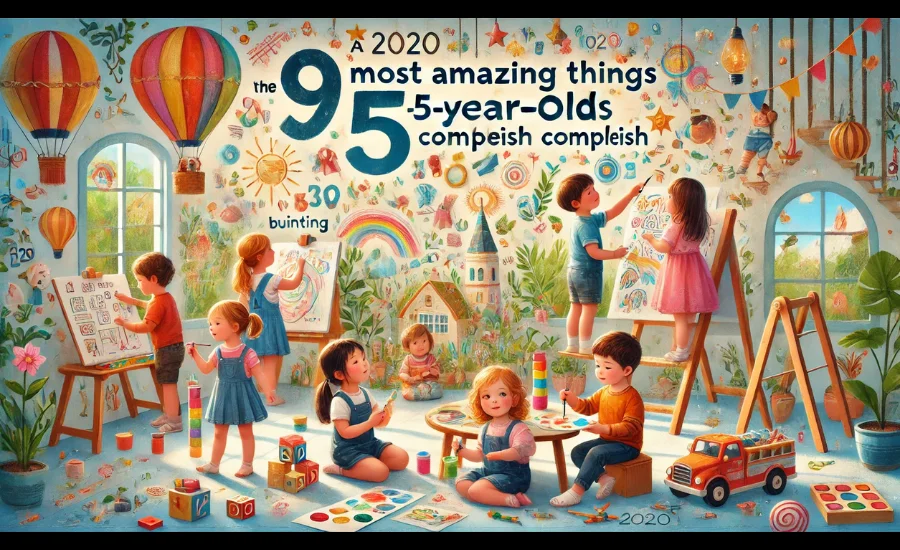At the age of five, children experience significant growth, both physically and mentally, marking an important phase in their development. This stage is a time of newfound independence and skill-building, which lays the groundwork for their future success. Recognizing these developmental milestones helps parents and educators provide the right guidance and support to nurture a child’s potential.
Around age five, children undergo rapid changes in both physical abilities and cognitive skills. They begin to demonstrate more coordination and agility in activities like running, jumping, and climbing. Fine motor skills improve as well, allowing them to manage tasks such as using utensils, dressing themselves, and drawing more precisely. On the cognitive front, children start to grasp more complex concepts, solving simple problems and engaging in more meaningful conversations. Their vocabulary expands, and they can express themselves in more sophisticated ways, fostering better communication with others.
Alongside physical and cognitive advancements, emotional and social skills also evolve during this period. Children begin to better understand their emotions and learn how to manage them. They gain a clearer sense of empathy and can recognize and respect the feelings of others. Socially, five-year-olds begin to form genuine friendships, develop an understanding of taking turns, and grasp the importance of following rules. Sharing becomes easier, and they start to comprehend group dynamics, preparing them for school and other social settings.
The skills developed at this age are not just crucial for the present but also set the stage for future learning and achievements. By fostering a supportive environment, parents and caregivers can help children build self-confidence, curiosity, and resilience. This period is key for establishing strong foundations in both academic and personal areas. Tailored learning approaches that take into account each child’s unique developmental pace ensure they receive the support they need to thrive in the years ahead.
Key Developmental Milestones for Learning the 9 Most Amazing Things 5-Year-Olds Accomplish 2020 Stjcc
The age of five represents a pivotal moment in a child’s life. At this stage, children undergo profound physical, cognitive, emotional, and social development that shapes their future learning and growth. Five-year-olds are no longer just absorbing information but actively engaging with it in a more sophisticated manner. Their developmental milestones at this age lay the foundation for academic success, emotional intelligence, and social competence. Understanding these milestones allows caregivers, educators, and parents to support children’s development effectively and nurture their potential during this crucial time.
The Importance of Early Development
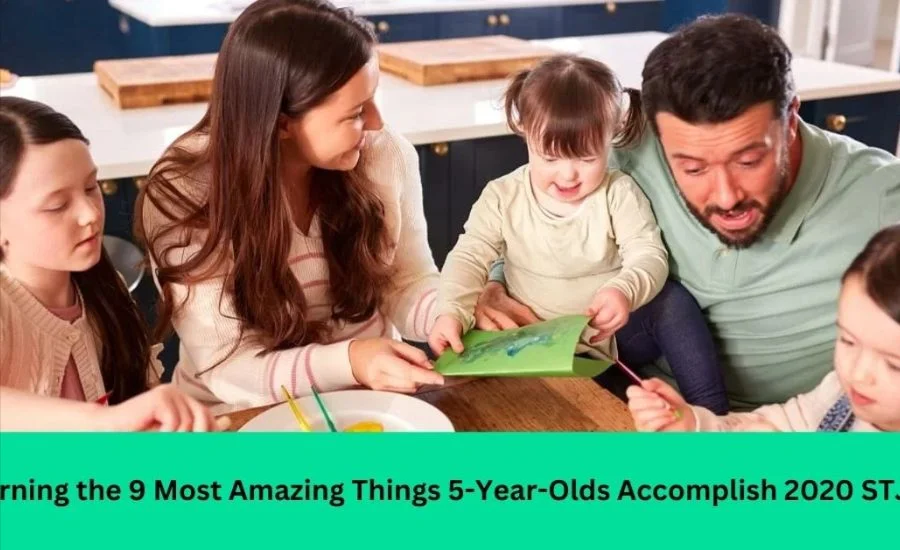
Early childhood, particularly by the time children reach five years old, is a critical period of development. This is when they develop foundational skills that will last a lifetime. Cognitive, emotional, and social skills are all deeply intertwined, each influencing the other in important ways. Children learn best when they are engaged, supported, and challenged at the right developmental level. During the five-year-old phase, they gain more independence and begin to develop an identity, forming the basis for their future success both in and out of the classroom.
Cognitive Growth and Expanding Knowledge
At five years old, a child’s brain is developing at an extraordinary rate. Their capacity to absorb new information, solve problems, and understand the world around them expands exponentially. Cognitive development at this stage is the foundation of future learning. One of the key milestones of this age is the development of executive functions like attention, memory, and decision-making, which are essential for academic success in later years.
Understanding Time and Abstract Concepts
A significant leap in cognitive development for five-year-olds is their growing understanding of abstract concepts like time. At this age, children start grasping the idea of yesterday, today, and tomorrow, which allows them to better understand the sequence of events in their daily lives. This understanding helps them navigate their daily routines with more structure and predictability, contributing to their growing sense of security and independence.
Moreover, five-year-olds begin to recognize cause and effect relationships. This means they start to understand that their actions have consequences, and they can predict the results of their behavior. These early lessons in reasoning and problem-solving are fundamental for academic achievement, as they set the stage for more complex thinking.
Enhanced Language Skills
As children’s cognitive abilities grow, so do their language skills. Five-year-olds can construct longer, more complex sentences, and their vocabulary expands significantly. They begin to understand and use words with multiple meanings and engage in conversations that are more meaningful and connected to their everyday experiences. This is an important step in language development, as it lays the groundwork for reading and writing skills that they will develop in the years to come.
By understanding language more deeply, five-year-olds can express themselves more clearly and can also better comprehend instructions, stories, and ideas presented to them. This improved communication ability allows them to interact more effectively with others, both in social settings and in academic environments.
Emotional Development: Building Emotional Intelligence
One of the most significant advancements in a five-year-old’s development is the growth of emotional intelligence. Emotional regulation, empathy, and understanding emotions in others are essential skills that children develop at this age. Emotional intelligence plays a crucial role in a child’s ability to form relationships, succeed in school, and manage life challenges.
Recognizing and Managing Emotions
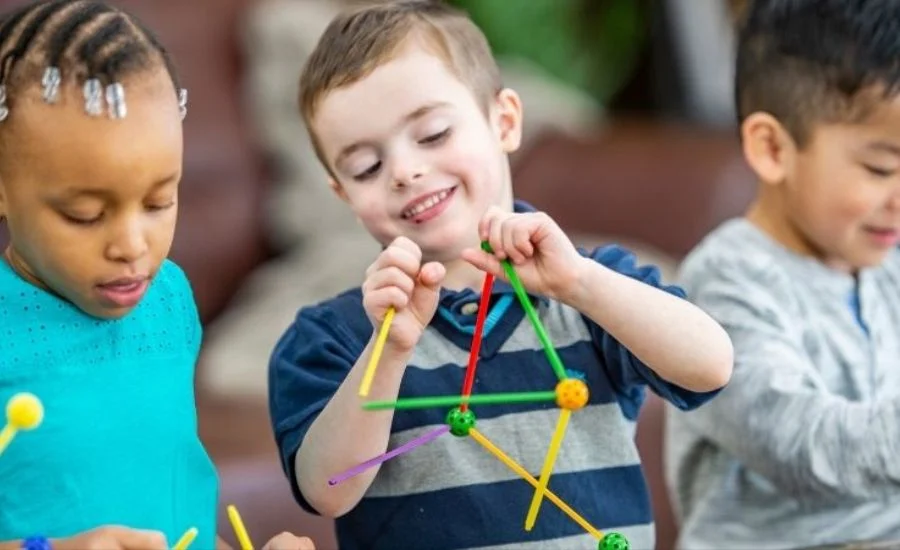
At five, children become more aware of their own feelings and how to express them appropriately. They are better able to recognize and label their emotions, such as happiness, sadness, anger, and frustration. This increased emotional awareness helps them navigate social situations more effectively and build stronger relationships with others.
Furthermore, five-year-olds begin learning how to regulate their emotions. While they may still struggle with controlling impulses, they are increasingly able to manage their feelings in appropriate ways. This includes using words to express emotions instead of resorting to physical reactions like tantrums, which is a key milestone in their emotional development.
Empathy and Compassion
Empathy is another essential part of emotional development at this stage. Five-year-olds start to understand that other people have feelings and needs, which may be different from their own. They show empathy by comforting friends, sharing toys, or helping when someone is in distress. This early understanding of compassion not only enhances their relationships but also encourages prosocial behaviors that will serve them well in school and later in life.
Mastering Key Academic Skills
As children grow physically and cognitively, they also begin to acquire the skills needed for formal education. At five, children start developing foundational academic skills, particularly in literacy and numeracy. These skills are the building blocks for their future success in school.
Early Literacy Skills
By the age of five, many children have developed basic literacy skills, such as recognizing letters, understanding the sounds associated with them, and even reading simple words. They may also begin writing their names and other familiar words, which helps reinforce the connection between written and spoken language.
Children at this age also begin to understand simple stories, identify characters and events, and predict what will happen next in a narrative. These early reading experiences enhance their comprehension and imagination, preparing them for more advanced literacy tasks as they continue their academic journey.
Early Math Skills
Similarly, five-year-olds start learning basic math concepts. They begin to understand counting, recognize numbers, and grasp concepts such as addition and subtraction in their most basic forms. These skills provide a foundation for later mathematical learning, such as problem-solving and more complex operations.
At this stage, children may also begin recognizing patterns and shapes, and they might engage in sorting and classifying objects based on certain attributes. These early numeracy skills foster logical thinking and lay the groundwork for later success in math and science.
Fine Motor Skills and Coordination
Five-year-olds experience significant progress in fine motor development, which is critical for tasks such as writing, drawing, and using tools. Fine motor skills are essential for school activities like writing, cutting with scissors, and even using a computer mouse or keyboard. Developing these skills early enhances a child’s confidence and competence in the classroom.
Developing Hand-Eye Coordination
The improvement of hand-eye coordination is one of the most noticeable advancements for five-year-olds. This skill enables children to complete tasks that require precision, such as drawing, coloring, and constructing things with blocks. Children also improve their ability to perform tasks that require dexterity, such as cutting paper with scissors or assembling puzzles.
Hand-eye coordination is not only vital for academic success but also for physical play. Many games and sports require coordination, and a five-year-old’s growing ability to control their hand and eye movements helps them engage in more complex physical activities.
Artistic Expression and Creativity
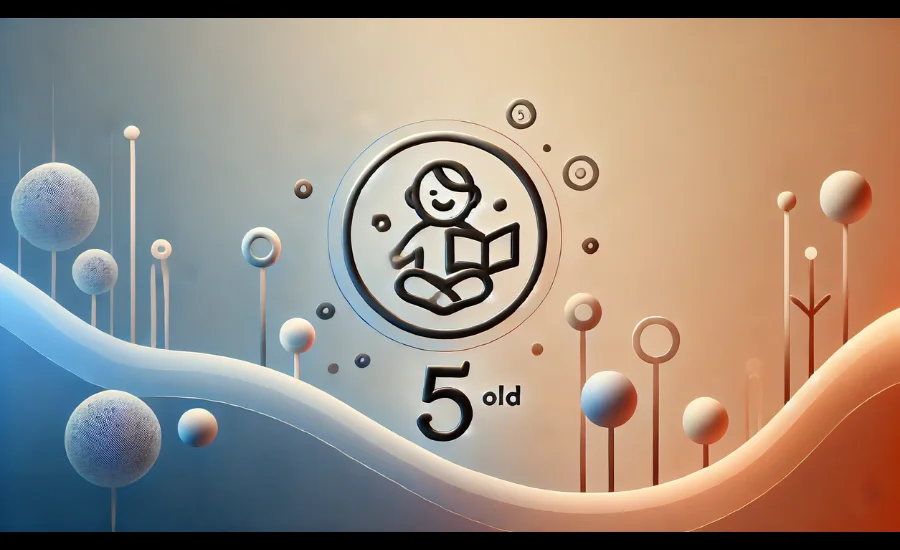
Creativity flourishes at this age, as children use their growing fine motor skills to explore artistic activities. Drawing, coloring, painting, and crafting are not only fun but also critical for cognitive and emotional development. These activities encourage children to use their imagination, develop their problem-solving abilities, and express their feelings in healthy ways.
The ability to create art also supports children’s cognitive development by encouraging them to observe details, use patterns, and think critically. Whether it’s sketching a picture of their family or assembling a model from clay, these creative outlets contribute to their overall development.
Social Skills: Building Friendships and Cooperation
Children begin to understand the importance of friendship and cooperation and are more capable of engaging in complex social interactions.
The Role of Play in Social Development
Play is one of the most effective ways for five-year-olds to develop social skills. Whether they are playing group games, role-playing, or participating in structured activities, these interactions help them learn the rules of social engagement and practice important skills like empathy and problem-solving.
Building Strong Friendships
At this age, children start forming real friendships based on shared interests and mutual respect. They begin to understand that friendships require effort and that maintaining these relationships involves cooperation and understanding. By engaging with their peers in meaningful ways, five-year-olds build strong social bonds that provide them with emotional support and a sense of belonging.
Resilience and Adaptability
The experiences of 2020 highlighted the remarkable resilience of five-year-olds, who adapted to significant disruptions in their routines due to the pandemic. Despite the challenges of social distancing, virtual learning, and changes to daily life, many children demonstrated an incredible ability to adapt and thrive. This period revealed the depth of their emotional resilience and flexibility, which will serve them well in future challenges.
Coping with Change
Five-year-olds learned to cope with the uncertainty of the pandemic by relying on their families, engaging in creative activities, and maintaining a sense of routine. Their ability to adjust to new circumstances, while still seeking out joy in their surroundings, showcased their adaptability and emotional strength. These experiences contribute to their emotional growth, equipping them with the tools to navigate future challenges with confidence.
Fostering Independence and Self-Confidence
At age five, children begin taking on more responsibility for their daily activities. They learn to manage their belongings, dress themselves, and follow through on small tasks without needing constant guidance. This sense of independence contributes to their growing self-confidence and self-sufficiency.
Building Responsibility
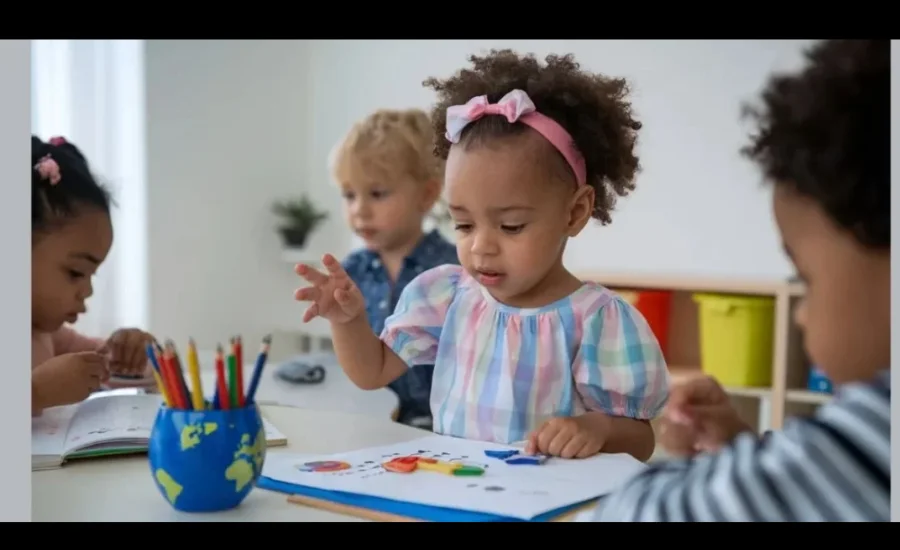
Five-year-olds start to understand the importance of being responsible for themselves and their actions. Whether it’s cleaning up their toys, feeding pets, or choosing their clothes for the day, these tasks help them feel a sense of accomplishment and pride in their abilities. As children develop independence, they also gain a greater sense of ownership over their learning and personal development.
Also Read: Lepbound
Final Words
At age five, children experience remarkable growth in physical, cognitive, emotional, and social areas. This stage is characterized by newfound independence, enhanced coordination, and an expanding vocabulary. Children begin to understand abstract concepts like time, and their ability to engage in problem-solving and meaningful conversations grows. Emotionally, they start to recognize and regulate their feelings, while also developing empathy and compassion for others. Socially, they form deeper friendships, learning cooperation, sharing, and respecting rules.
Academically, five-year-olds make strides in literacy and numeracy, building foundational skills for future learning. Fine motor skills improve, helping with tasks like writing, drawing, and cutting. Through play, children learn vital social skills, including conflict resolution and teamwork. As they build responsibility and confidence, five-year-olds become more self-sufficient and ready to face challenges. This stage sets the foundation for future academic success and personal growth, making it a critical time for development and support.
FAQs
1. What are the key developmental milestones for a 5-year-old?
At age five, children typically show improvements in physical coordination, cognitive skills, emotional regulation, and social abilities. They develop better hand-eye coordination, a growing vocabulary, and start grasping abstract concepts like time and cause-and-effect relationships.
2. How can I support my 5-year-old’s cognitive development?
Encourage problem-solving activities, provide opportunities for creative play, and engage in conversations that challenge their thinking. Reading together and discussing stories also aids cognitive growth.
3. What are some signs of emotional growth in five-year-olds?
Five-year-olds begin to recognize and express their emotions more clearly, such as labeling feelings like happiness or frustration. They also develop empathy, understanding that others have emotions, and may show compassion in social situations.
4. What social skills should a 5-year-old be learning?
At this age, children learn to take turns, share, cooperate, and follow rules. They start forming deeper friendships and practicing conflict resolution skills during play and group activities.
5. How can I help my 5-year-old improve their language skills?
Encourage conversation by asking open-ended questions, read books together, and help them describe their thoughts and experiences. Providing a rich vocabulary and using a variety of words helps expand their language skills.
6. Is my 5-year-old ready for school?
At five, children are typically ready for school if they can follow simple directions, engage in basic conversations, and demonstrate social skills like taking turns and sharing. Basic literacy and numeracy skills also help prepare them for a school environment.
7. How can I help my child build self-confidence?
Encourage independence by letting them make simple decisions, such as choosing their clothes or completing small tasks. Praise their efforts and accomplishments, and create an environment where mistakes are seen as learning opportunities.
8. How do fine motor skills develop at age five?
Five-year-olds show improvement in tasks requiring precision, such as drawing, writing, using scissors, and manipulating small objects. These skills are crucial for academic tasks and daily activities.
9. Why is play important for a 5-year-old’s development?
Play helps five-year-olds develop social skills, creativity, problem-solving abilities, and emotional intelligence. It provides opportunities for learning and practicing new skills in a relaxed and enjoyable environment.
10. What academic skills should a 5-year-old be learning?
At five, children begin recognizing letters, understanding letter sounds, and may start reading simple words. Basic math skills like counting, recognizing numbers, and understanding simple addition and subtraction are also part of early academic learning.
For exclusive insights on the incredible milestones of 5-year-olds, visit Creative Insider and explore “Learning the 9 Most Amazing Things 5-Year-Olds Accomplish 2020 Stjcc.”
